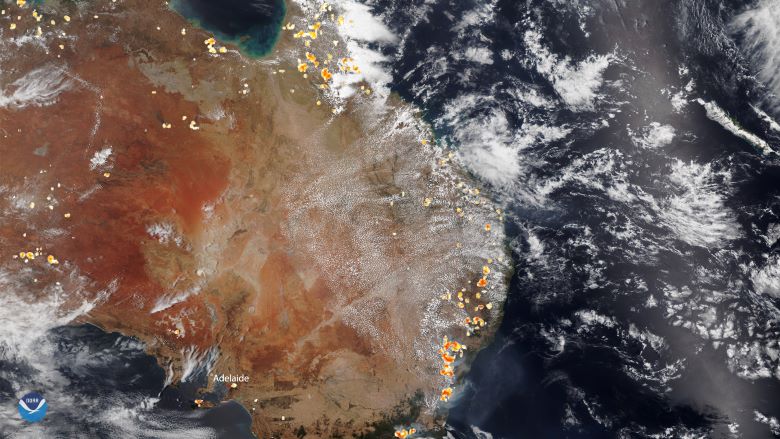The Australian wildfires began in July 2019 and raged for months. The worst of the fires was not extinguished until early March 2020. The smoke from the fires was visible from space.
“It was eerie being there and then in amongst all this ash and black burnt trunks was all this rejuvenation. It gives you hope.”
The devastation has been enormous; the number of animals, reptiles and birds killed are estimated at a billion. And yet, out of this chaos and destruction comes new life.
Mary Voorwinde, a photographer from New South Wales, found new growth amid the burned forests. Her photographs show vibrant red and green plants blooming on the trunks of burnt trees and shoots of grasses emerging from the burned debris on the ground. She told a reporter that “it was eerie being there and then in amongst all this ash and black burnt trunks was all this rejuvenation. It gives you hope.”
As a result of the devastation and inadequacy of standard firefighting techniques in such massive fires, officials are now beginning to listen to indigenous wisdom to prevent large conflagrations with controlled burning.
Aboriginal fire management, also called cultural burning, involves an intimate relationship to the land. It is not one specific technique, but a localized understanding of what is needed for the environment.
Meeting the UN's Goals
Goal 15: Life on Land | Protect, restore and promote sustainable use of terrestrial ecosystems, sustainably manage forests, combat desertification, and halt and reverse land degradation and halt biodiversity loss.
This is the final installment in a series of Stories of Hope for the Easter Season prepared by the Justice, Peace, and Integrity of Creation committee of the Dominican Sisters of Springfield (JPIC). Every story demonstrates a success in meeting one or more of the United Nations' Sustainable Development Goals (SDGs) and provides a glimpse into the world that is possible.
Photo: NOAA infrared satellite image of Australia taken Dec. 26, 2019. Historic bush fires raged on the continent from July 2019 until March 2020.


